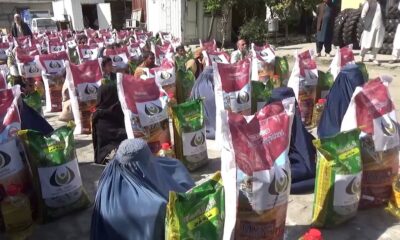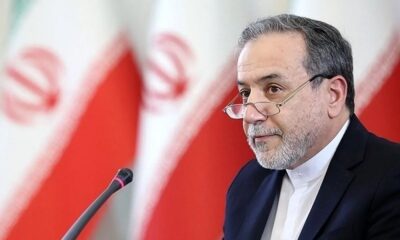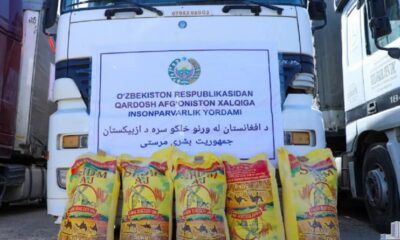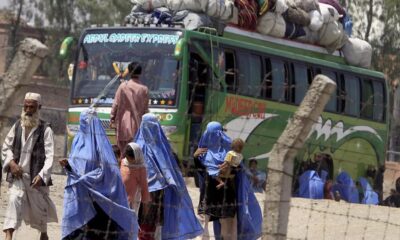Latest News
Hanafi appeals for cooperation, assures the world the IEA is a ‘responsible govt’
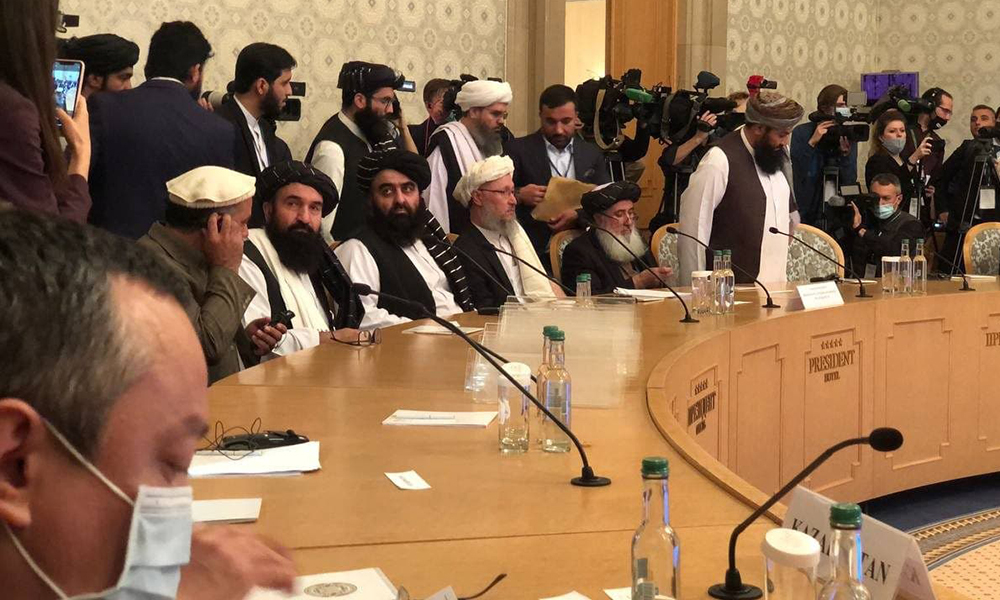
Deputy Prime Minister Abdul Salam Hanafi said on Wednesday at the high-level meeting in Moscow on Afghanistan that the new Islamic Emirate (IEA) leaders assure the world that no security threat will be posed to them from within Afghanistan.
Addressing delegates at the summit, Hanafi said the new administration was a “responsible government “.
“We assure [the world and the region] that the security situation in Afghanistan is reliable and there is no threat to countries near and far.”
He stated Afghans now have a responsible government, which is committed to national interests, and to safeguarding the country’s political freedom.
“The current government also assures the international community that, as a responsible government, it fully understands all its national and international responsibilities,” he said.
Hanafi went on to say that the IEA leadership has tried to incorporate all ethnic groups and sections of Afghan society into the new Islamic government.
“We must remember that the recent development was a revolutionary one. But we assure our people that the process of reforming the country’s political structure continues.
“It should not be forgotten that the reform process in political systems is time consuming. But there is serious determination in our leadership that the new government will provide standard and fast services to our people,” he said.
Raising the issue of rampant corruption under the previous regime, Hanafi said this problem was prevalent in all sectors of the political structure and that despite repeated promises by former leaders to fight the scourge, nothing was done.
“You all wintessed that the people of Afghanistan have suffered greatly from widespread corruption over the past twenty years.
“Unfortunately, corruption in the previous regime covered all parts of the political structure, and despite beautiful promises at international forums, until the last moment of the previous regime, no progress was made in the fight against corruption, and the leaders of the previous regime missed every opportunity and used the pursuit of national wealth [for their own benefit].
“We inherited a government that owed money to its neighbors. One which had not even paid its employees their salaries for months.
“The new Islamic government proved in a short period of time that it is very serious about the fight against corruption and good governance, and that there will not be the slightest tolerance for corruption.
“We understand that our people have suffered from the wars imposed by foreigners, the imposition of foreign political structures, and widespread corruption. It is the responsibility of our government to provide good services to our people like any other nation in the world,” he said.
He also said it was the first time in over 40 years that a government in power was able to rule the entire country.
“Afghanistan now has a political structure with a clear hierarchy, a unified command. We no longer have anything called islands of power in Afghanistan.”
He said all the pillars of government were now in place and called on the international community to recognize the IEA as the legitimate government and to release Afghanistan’s frozen assets.
He stated that isolating Afghanistan was not in the interests of the rest of the world
“For the first time, our people have a (proper) government, they hope the international community has formal interactions with their government,” he said.
Hanafi told delegates the new government is ready to address all the international community’s concerns openly, honestly and transparently.
“I would like to remind you that the people of Afghanistan have no will to harm any country or nation in the world. As a civilized nation with a strong religion, culture and human values, we want to live in a peaceful environment. We want relations with neighboring countries, the region and the world that are based on the principle of respect for national sovereignty and mutual respect.
“With this platform, we once again call on the United States of America to unfreeze the reserves of the Central Bank of Afghanistan. This is, in fact, the wealth of the Afghan people, and our suffering people should not pay the price for political differences,” he said.
“I want to make it clear that the Islamic Emirate of Afghanistan has proven in the past that in order to preserve freedom, national and religious values and the supreme interests of the country, no deal will be made under pressure that is not acceptable to our people. The pressure option has been proven (to be a failure) in the past.
“It is good to interact through understanding. The Islamic Emirate, as a legitimate government, is responsible for preparing for any civilized interaction with the rest of the world,” he stated.
Hanafi meanwhile met with Russian Foreign Minister Sergei Lavrov in Moscow on the sidelines of the meeting.
During the meeting, the two sides discussed in detail relations between the two countries, stability in the region and a better future for Afghanistan, MoFA spokesman Abdul Qahar Balkhi tweeted.
China meanwhile came out in support of the Afghan delegation’s participation at the Moscow summit and called on delegates to cooperate with the Afghan people in rebuilding the country.
“They say we can make our region safer and more stable,” Chinese delegates said.
China said it is cooperating with the new government and that it will not interfere in Afghanistan’s internal affairs but will continue constructive relations with Kabul.
“The international community must not ignore the progress made over the past two months,” China stated.
Eleven countries gathered in Moscow Wednesday to discuss the way forward with Afghanistan which is facing a looming humanitarian crisis as the international community continues to refuse to acknowledge the IEA as a legitimate government.
Latest News
Needy families in Nangarhar receive Ramadan aid from Bayat Foundation
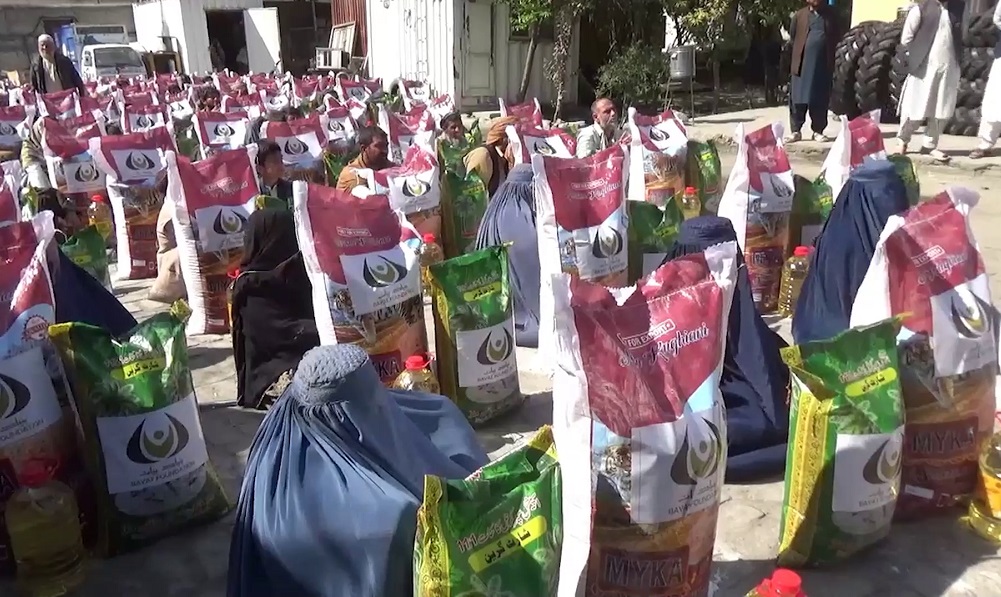
On the occasion of Ramadan, Bayat Foundation delivered food aid to dozens of needy families in Afghanistan’s eastern province of Nangarhar this week.
The organization’s officials said that the aid packages include flour, rice, and cooking oil, which was distributed to the needy after a transparent assessment.
“Bayat Foundation helps thousands of families across Afghanistan every year. Fortunately, today this Ramadan aid was distributed to hundreds of families in Jalalabad. This aid includes flour, rice, and cooking oil,” Attaullah Sahil, a representative of Bayat Foundation in Nangarhar, said.
Appreciating Bayat Foundation’s assistance, officials of the Nangarhar Department of Economy called on other charities to help the needy during the holy month of Ramadan.
“These families are very deserving families who were selected after conducting a survey in the presence of representatives of the Department of Economy and Bayat Foundation. All families are deserving, and they include widows, the disabled and the poor,” Mohammad Asif Rahmani, a representative of the Nangarhar Department of Economy, said.
Recipients welcomed the Ramadan aid from Bayat Foundation, saying that those in need require more help.
Haider, an aid recipient, said: “We are very poor people. There are no job opportunities. Thank you very much to Bayat Foundation for helping us.”
Mohammad Zaman, another aid recipient, said: “During this Ramadan, I was facing difficulties. I could not find sustenance. Bayat Foundation helped us. May God help it.”
Bayat Foundation has helped the needy not only during the holy month of Ramadan, but also during natural disasters, and has continued to cooperate with government institutions in various sectors, especially health and education.
Latest News
IEA controls power in Afghanistan, security prevails: Araqchi
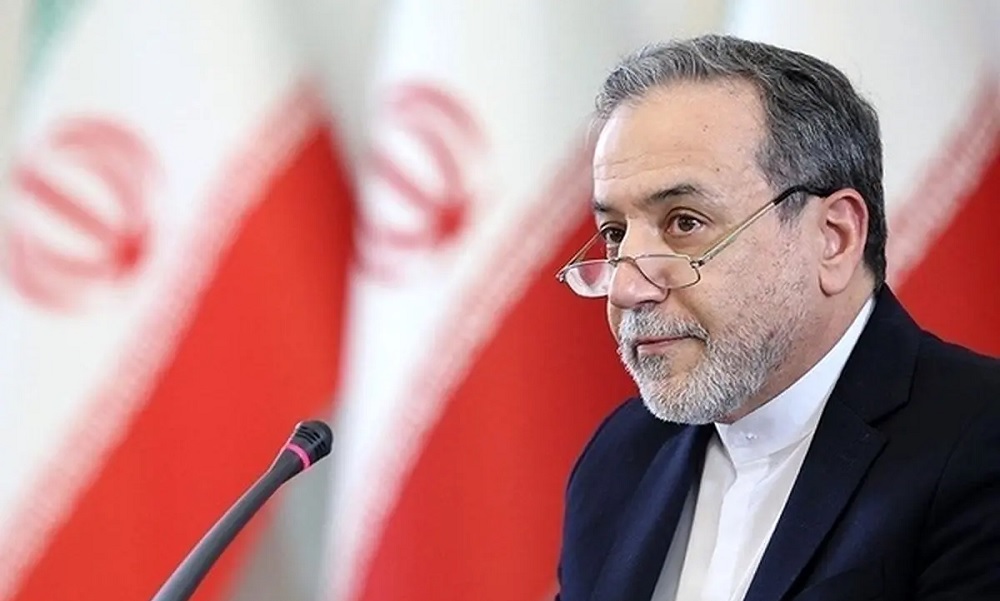
Iran’s foreign minister, Abbas Araqchi, has said that the Islamic Emirate controls power in Afghanistan and security prevails across the country.
Speaking in an interview with Khabar Online, Araqchi said that before the Islamic Emirate took over, different parts of Afghanistan would be governed by different groups.
“The reality is that now there is a power in Afghanistan that has consolidated its rule over the past three and a half years, and unlike in the past, when every corner of Afghanistan was in the hands of different people, this is not the case now. Security and rule prevail. We must address the issues and resolve them for our national interests,” Araqchi said.
The Islamic Emirate welcomed the remarks saying that it indicates an understanding of the realities in Afghanistan.
“This actually means a correct understanding of the realities in Afghanistan. It is a fact that there is a single political governance in Afghanistan that has complete control over Afghanistan,” Hamdullah Fitrat, deputy spokesman for the Islamic Emirate, said.
Araqchi also added in his interview that there are issues in Afghanistan that are related to Iran’s national interests, so he traveled to Kabul to discuss them with the officials of the Islamic Emirate.
He mentioned water rights, presence of Afghan refugees in Iran and Daesh as issues that need to be discussed between the officials of the two countries.
The Iranian diplomat said that Tehran, like other countries, has not recognized the Islamic Emirate, but despite sanctions, trade is taking place between the two countries in high volumes.
Separately, Deputy Prime Minister for Administrative Affairs, Abdulsalam Hanafi, said in a meeting with the acting ambassador of Afghanistan to Iran recently that Afghanistan and Iran have long-standing religious, historical, cultural and economic relations, and the embassy officials should make every effort to strengthen them.
Latest News
Uzbekistan sends essential food aid to Afghanistan
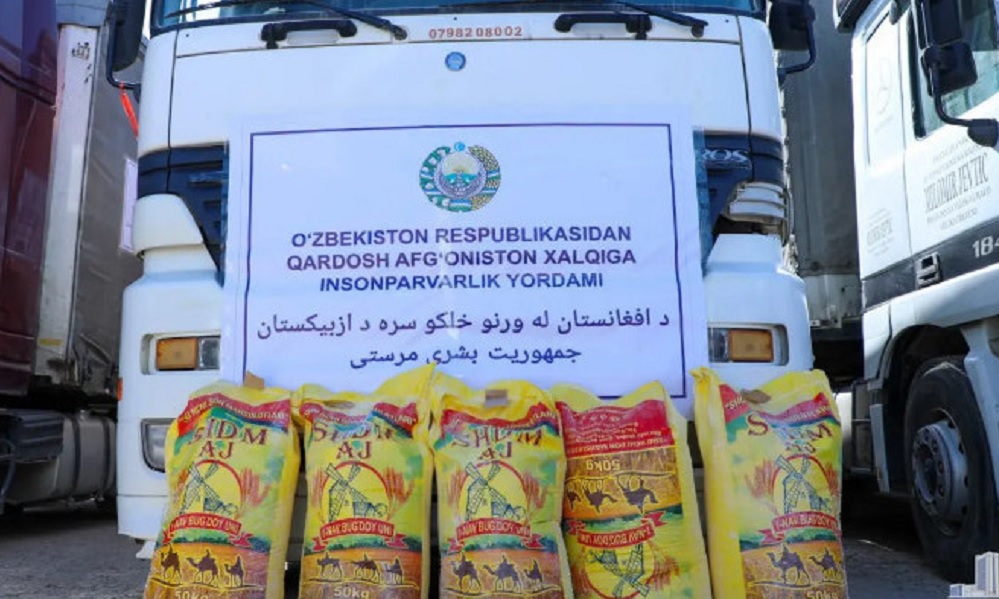
Marking the new solar year, 1404, and the holy month of Ramadan, Uzbekistan this week delivered almost 200 tons of food aid to Afghanistan via Balkh province.
This is in line with Uzbekistan President Shavkat Mirziyoyev’s directive that humanitarian aid be sent to Afghanistan, Kun.uz reported.
The essential food items were handed over in Hairatan border town in a ceremony attended by Uzbekistan’s Special Representative for Afghanistan Ismatulla Irgashev; Surkhandarya governor Ulugbek Kosimov; representatives from relevant ministries; Balkh provincial governor Muhammad Yusuf Vafo; and other officials from both countries.
The aid package consists of flour, wheat, pasta, vegetable oil, sugar, instant meals, red beans, and mung beans.
Additionally, a bilateral meeting was held in Mazar-e-Sharif, where discussions focused on advancing future cooperation. During the talks, special attention was given to the construction of the Imam Bukhari Mausoleum in Afghanistan, a project supported by Uzbekistan.
Afghan officials expressed gratitude to the president and people of Uzbekistan for their assistance, Akipress reported.
At the end of December, Uzbekistan sent humanitarian aid containing food and medicine to Afghanistan, as well as a “health train”.
Uzbek doctors conducted free medical examinations of the population in Balkh province between December 25 and December 30.
-
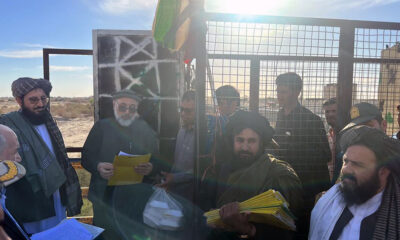
 Latest News5 days ago
Latest News5 days agoAfghan prisoners in Iran sent home
-
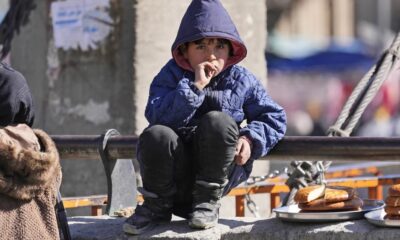
 Latest News5 days ago
Latest News5 days agoAfghanistan ranks last in World Happiness Report
-
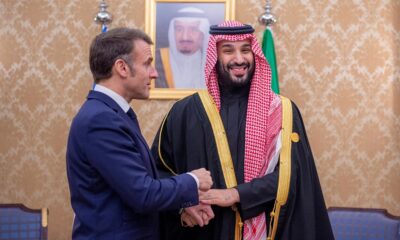
 Regional5 days ago
Regional5 days agoMacron and Saudi Crown Prince discuss Gaza, Ukraine peace process
-
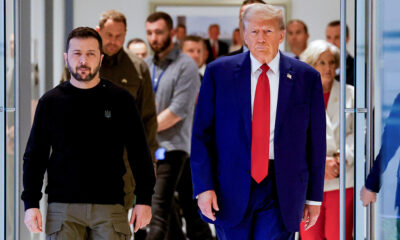
 World5 days ago
World5 days agoTrump, Zelenskiy pledge in phone call to work for end to war in Ukraine
-
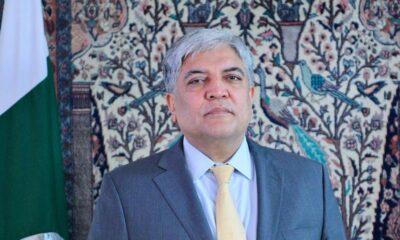
 Latest News4 days ago
Latest News4 days agoPakistan once again urges IEA to act against militants
-
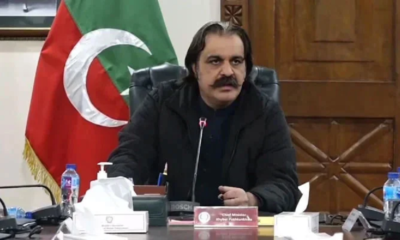
 Latest News5 days ago
Latest News5 days agoKhyber Pakhtunkhwa chief minister opposes military operations in the province
-
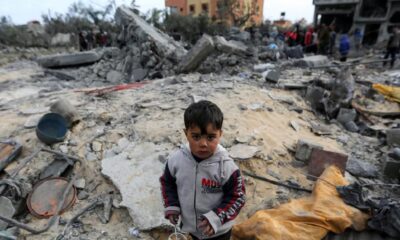
 Regional4 days ago
Regional4 days agoAt least 91 killed in Gaza as Israel abandons ceasefire, orders evacuations
-

 Sport4 days ago
Sport4 days agoAFC Beach Soccer: UAE thrash Afghanistan 7-1 in opener


